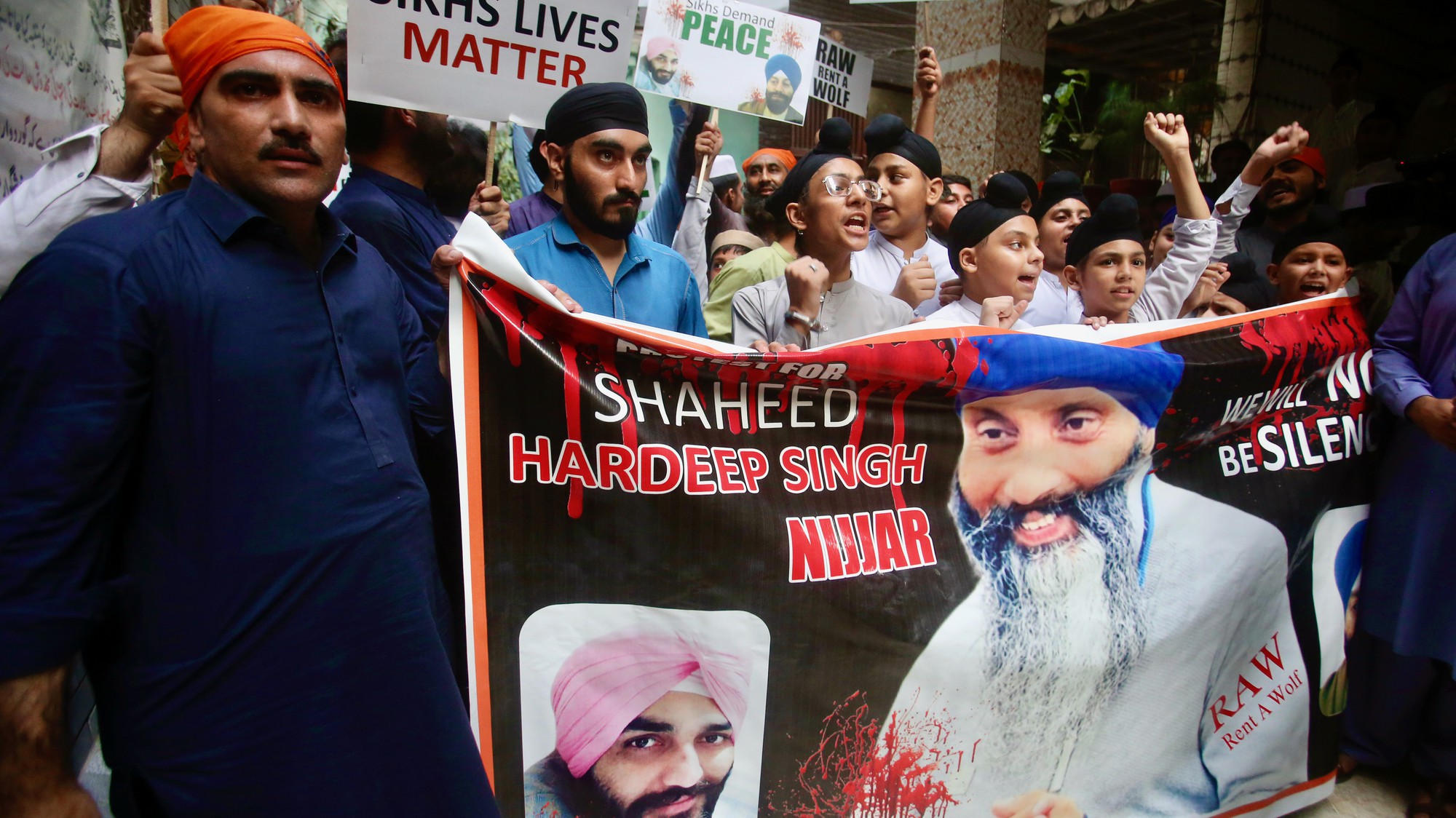The first thing done to justify the murder of Hardeep Singh Nijjar was to label him an illegal immigrant and a terrorist. The 45-year-old president of the Guru Nanak Sikh Gurdwara is being demonized in many quarters to justify the alleged extra-territorial, extra-judicial hit in B.C. in June.
Language is powerful. It can provide some justification for the unacceptable. Racist words justify or downplay this extra-judicial killing, harming the targeted demographic and our nation’s laws.
A Canadian citizen, as confirmed by Immigration Minister Marc Miller, was murdered by a foreign government on Canadian soil, according to Prime Minister Justin Trudeau.
By all measures, this is an alleged violation of Canadian sovereignty.
Yet the reaction of a vocal portion of the Canadian population has ignored this and moved to use racist demonization around Nijjar’s citizenship or claim he was a terrorist as justification for his killings.
Some publications within media have done this outright, such as The Economic Times stating he was a “notorious wanted terrorist,” and others have simply alluded to it without labelling him as one outright.
It’s a tactic seen regularly in Canada.
And now more than ever, Canadians and our media need to hold themselves accountable for the damage this rhetoric is doing and has done and to acknowledge the ignorance this country has of its racism and the harms this language perpetuates.
Let’s start by being completely frank about the terminology used — terrorist and illegal immigrant — and then we shall move on to what this type of language has done in the past.
The emotionally provocative term “terrorist” is neutral in ideology but holds unique meanings when used politically. In simple terms, on its own, the term has no moral value about the person it’s used to describe.
The fact of the matter is, according to the Oxford Dictionary, a terrorist is someone using violent action to achieve political goals.
This definition used in a country like the United States encompasses people and groups from al-Qaeda and Timothy McVeigh to the Black Panthers. Nelson Mandela was on the U.S. terrorism watch list until 2008.
In Canada, the 2012 Quebec student protests or the Freedom Convoy could be described as acts of rioting and the organizers deemed as terrorists.
However, the political optics of the statement and cultural idea around racial or political demographics means not all media or members of governance will call them that.
In a post 9/11 world, the word terrorist is often weaponized against South and Southeast Asians as a tool to dehumanize them and force a narrative upon people to serve political ends. This is the reason the term is harmful.
After all, the first hate crime in North America in retaliation for the World Trade Center attacks was the murder of Balbir Singh Sodhi, a Sikh man in Arizona. We haven’t slowed down since.
The same racist rhetoric reoccurred during the Asian hate crime spike because of COVID-19. People blamed those of Asian descent in Canada and the U.S. for the pandemic.
The language harmed one targeted demographic until the next perceived crisis appeared.
Much of the same applies to the term illegal immigrant. The rhetoric, however, has an extra economic twist to reach working-class citizens worried about their financial troubles.
The base idea comes down to putting up the image that a minority group that doesn’t fit in among the imagined ordinary Canadian is coming in to do economic or physical harm.
These ideas are based heavily on the ideals of racism.
India has had the highest legal immigrant population by far in Canada, according to Immigration, Refugees and Citizenship Canada. The narrative of people of that region being here illegally shouldn’t hold much weight.
So, with all this together, we look at one major historical event within our borders: the Japanese internment camps of the Second World War.
The Japanese, including those born in Canada, were demonized simply for their ethnicity. They had their rights stripped and property stolen, undermining their humanity as they were shoved into camps.
This isn’t meant as a one-to-one comparison of the circumstances of modern-day Sikhs and Japanese. It does demonstrate how language perpetuates these ideas, which allows harm to come to our own people.
Now is the time Canadians need to stand up and speak about this history and how this language undermined the human rights of Canadians and tarnished the country as a self-governing democracy.
This language is being used to undermine Canada’s sovereignty and is harming our citizens. It can do much worse, that is unless we stand up and fight back against it.

